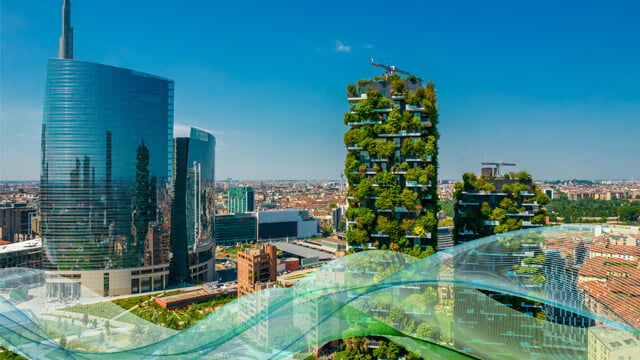Heat recovery in sustainable cities
There is enough waste energy worldwide to heat all buildings, yet waste heat recovery examples are scarce. The best energy is the one not used, and the next best is the one reused. We can repurpose energy from industries and urban sources like data centers, metro stations, supermarkets, and underground mines. This recovered heat can be used locally, such as in space and tap water heating. Additionally, it can be sold for district heating purposes.


Cooled acid turns to district heating
Since 1974 Kemira has, efficient and reliable, been selling energy to the city of Helsingborg.
The best energy is the one not used, and the next best energy is the one reused."
Following a total reconstruction of the cooling system at the Kemira sulphuric acid plant, the temperature of the cooling water has been raised to a level at which it can be used for district heating.
Trend in Industry
To keep the global warming target of 1.5 °C alive, we need to triple the installed capacity of renewable energy and double the rate of global energy efficiency improvements by 2030. Use of the excess heat available worldwide will be essential and a great opportunity to achieve this. Only in EU, the available excess energy is expected to surplus 2000 TWh in 2050 which could cover almost the full heat demand for space and tap water heating (Mathiesen 2023).
The excess heat is generated both from industrial processes and urban sources such as wastewater treatment plants, data centres, hospitals, and the metro. New solutions for heat reuse are being deployed every day. However, location, infrastructure, and demand patterns often cause heat to be lost.
- 22 countries in EU could cover more than 50 % of their current energy demand with excess heat.
- Low temperature excess heat from wastewater treatment plants, 442 TWh/year, and data centres, 221 TWh/year, can be lifted with industrial heat pumps to temperature levels suitable to supply the district heating grid.
- By improving the energy efficiency and preparing buildings for low temperature heat distribution we can reduce heat losses in the district heating system and allow utilization of lower grade excess heat sources. In doing so the Coefficient of Performance (COP) of industrial heat pumps are improved even further.
- 30 % of the electricity in hydrogen production is converted to heat. When planning hydrogen plants, the location should be carefully selected to allow heat recovery while providing cooling to the electrolyser.
- Expansion of water-carried systems such as district energy and heat networks will be a crucial enabler to distribute excess heat.
- Fit for 55 package: cities in EU larger than 45 000 citizens will be required to produce a heating and cooling plan with mapping of the available energy to facilitate sector coupling and deployment of essential energy infrastructure.
- When cooling residential and service buildings with individual chillers, heat is produced as a by-product. This heat should be used for tap water heating or used to provide efficient cooling with an absorption chiller.
Why you should recover excess heat with Alfa Laval
- 99.9% of data centres’ electricity becomes excess heat. Our technology enables harnessing and reusing it for net-zero energy consumption.
- Alfa Laval has a broad range of contact points to connect energy companies to heat networks and district energy networks.
- With millions of heat exchangers in operation worldwide and an extensive R&D program for heat exchangers, we offer the most reliable solution.
- We have reference units in both industrial and urban excess heat applications to provide heat for district heating.
- All our plate heat exchangers have AHRI certification, ensuring superior thermal performance. Don’t take just our word for it.
Розбірні пластинчасті теплообмінники
- Легко адаптуються до зміни умов процесу, забезпечуючи максимальну теплову ефективність
- Компактні розміри - економія місця для встановлення та простота обслуговування
- Рішення, що забезпечує максимальний час безвідмовногї роботи, знижує забруднення, втому матеріалу та корозію
Напівзварні пластинчасті теплообмінники
- Високоефективна, надійна технологія для застосувань, які можуть викликати втому від тиску або температури
- Гарантований тривалий термін служби ущільнення завдяки унікальній системі ущільнення Alfa Laval RefTight™
- Надійне рішення для запобігання перехресного забруднення між середовищами
Паяні пластинчасті теплообмінники
- Легка паяна конструкція, що має компактні розміри
- Більша теплова ефективність, порівняно з кожухотрубними апаратами
- Застосовуються у багатьох процесах з різними типами середовищ
- Ідеальне рішення для застосування з природними холодоагентами з низьким рівнем ПГП
Зварні пластинчасті теплообмінники AlfaNova
- Конструкція складається на 100% з нержавіючої сталі
- Стійкість до корозії при роботі з агресивними середовищами
- Запобігають забрудненню металом при роботі з питною водою чи іншими середовищами, які вимагають гігієнічного виконання
- Висока теплова ефективність та компактні розміри
Consultant? System integrator?
Are you a consultant? Look here! With expertise from decades of experience in heat exchange, Alfa Laval offers knowledgeable resources for today’s heating and cooling challenges. Discover answers to complex questions on everything from energy efficiency to natural refrigerants, along with helpful tools that make it simpler to find the right technology for your application.
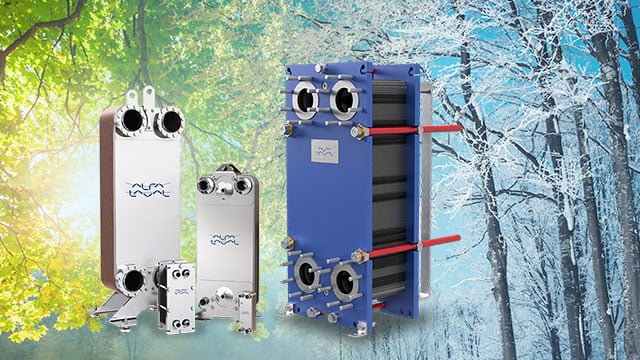
AHRI-performance-certified heat exchangers for confident thermal performance
Certification from the Air-Conditioning, Heating, and Refrigeration Institute (AHRI) is the only global third-party verification of thermal performance, giving you independent assurance that your plate heat exchanger will perform in accordance with the manufacturer’s published ratings. Alfa Laval offers AHRI-certified gasketed plate heat exchangers, brazed plate heat exchangers, and fusion-bonded plate heat exchangers.
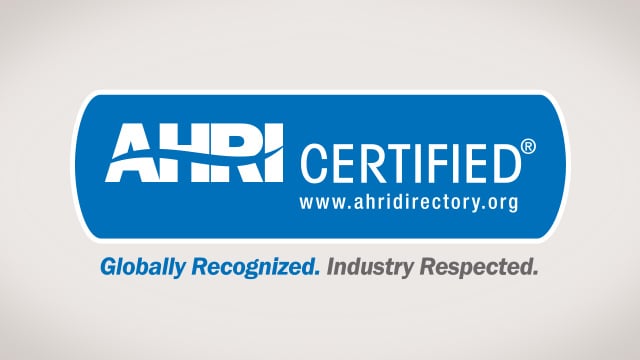
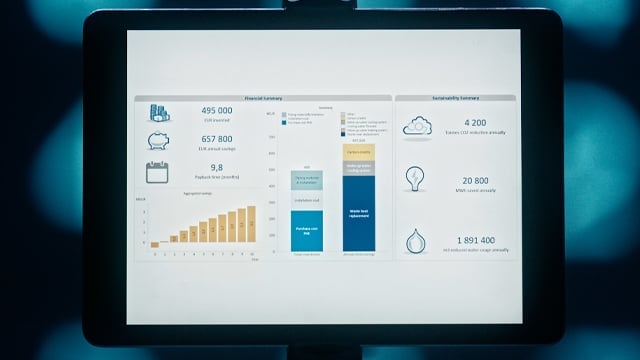
Hunting for excess heat
Alfa Laval heat exchangers have been used to recover heat for almost a century. Our energy-efficient solutions support heat reuse in diverse applications, from water and oil-cooled data centres to industrial processes like sulphuric acid plants. Join us in our search for heat-saving opportunities and discover how much you can reduce your energy bill with our solutions.
The Energy Efficiency Movement
The Energy Efficiency Movement, initiated by ABB, aims to create awareness and foster actionable change as a community. At Alfa Laval, we recognize the importance of working together to scale up energy-efficient solutions. That's why we were the first company to join the movement at COP26. With our extensive network, we can connect key industry players and help pave the way to a net-zero future.
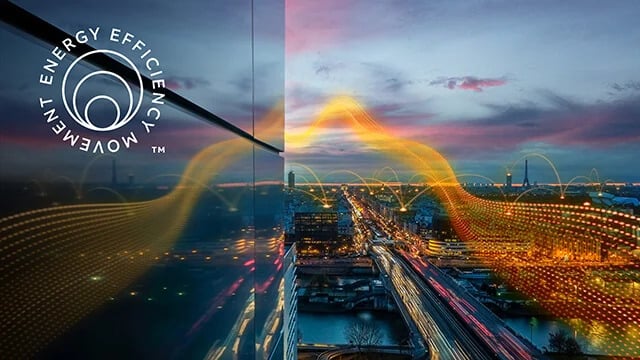
Making efficiency last for decades
A poorly functioning heat exchanger may affect safety, product quality and energy costs. Failure may lead to costly downtime and major losses in production. By regular and proactive maintenance of your gasketed plate heat exchanger performance is preserved and operations kept trouble-free and predictable.
We have the expertise to help you whether you experience a problem today, wish to prevent future issues or want to solve the problem yourself with our online troubleshooter.
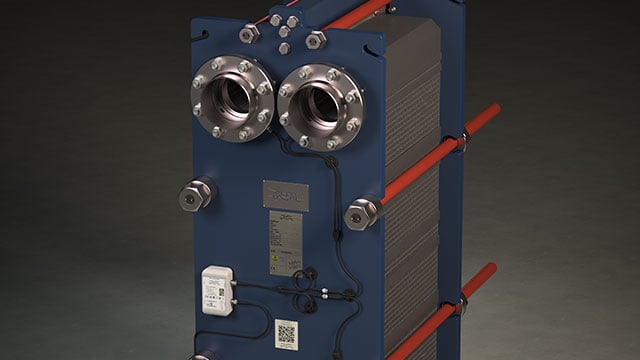
Digitalization for energy efficiency
Smart cities and digital intelligence could help cities to make progress toward meeting 70 percent of their Sustainable Development Goals. Digital services can already have a significant impact on heating and cooling systems in cities, making them more sustainable.
Enabling remote monitoring and performing dedicated analytics allow more precise and efficient operation, more informed decision-making, and targeted interventions. The development of more sophisticated and efficient heating and cooling systems is only possible through this digital transformation, which can provide reliable and affordable heating and cooling services to urban areas while reducing greenhouse gas emissions.
HVAC and the Sustainable cities
Consuming more than two-thirds of the world’s energy, our cities play a crucial role in tackling the climate crisis. A considerable part of cities’ energy consumption is for heating and cooling, which means improving energy efficiency is paramount. Alfa Laval has almost a century of experience in heat transfer and recovery and aims to become carbon neutral by 2030. Let us be your partner in the transformation to a sustainable tomorrow.
